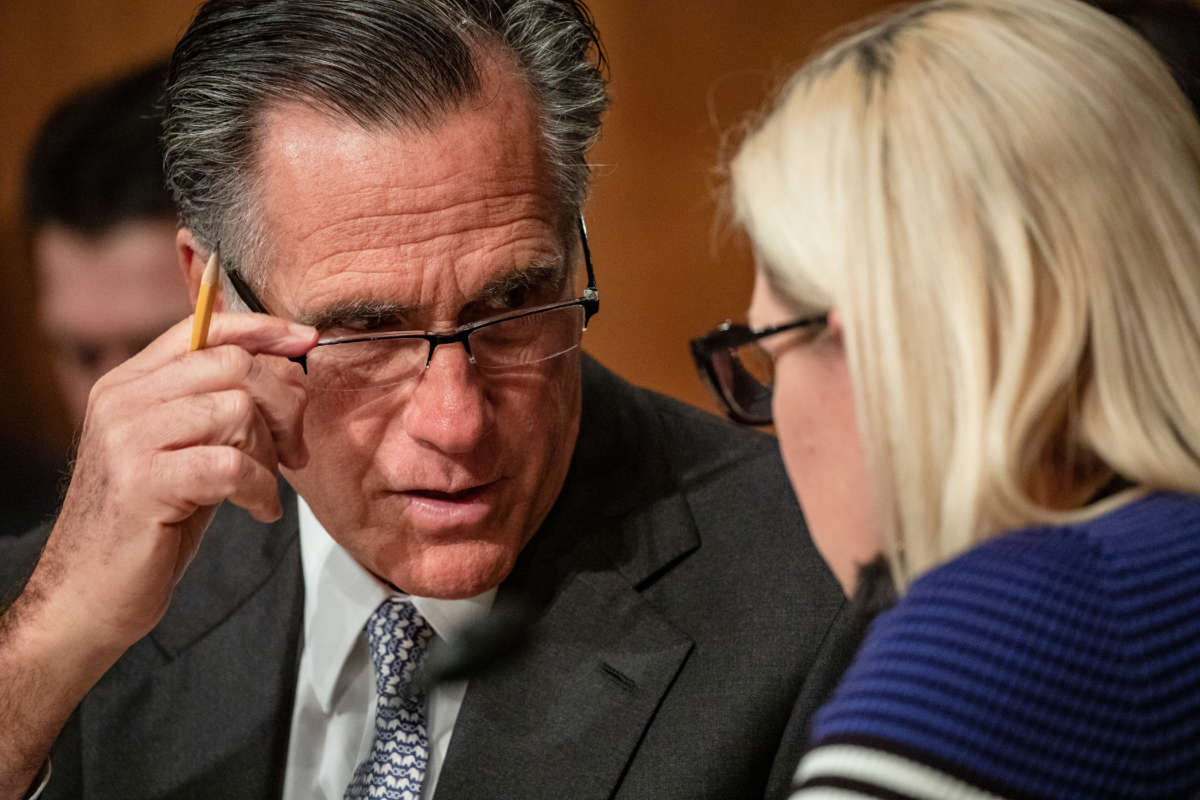Sen. Kyrsten Sinema (D-Arizona) is teaming up with Sen. Mitt Romney (R-Utah) to form a bipartisan minimum-wage raise to counter the $15 federal minimum wage favored by progressives, the White House and the U.S. public. But the wage that Romney and Sinema are reportedly advocating for is lower than the minimum wage in Sinema’s own state.
Sen. Joe Manchin (D-West Virginia) told HuffPost that the senators’ plan is to raise the federal minimum wage to $11 an hour. In Sinema’s home state of Arizona, however, the minimum wage is currently $12.15 an hour — higher than the threshold that Sinema is seeking to set federally.
Though neither Sinema nor Romney have confirmed that figure, Sinema has previously expressed her support for an $11 minimum wage. Manchin is reportedly circulating his own proposal for an $11 federal minimum wage indexed to inflation.
Romney has signaled to The Hill that he and Sinema were in agreement over what the proposal would be. “We’re negotiating a minimum wage proposal which we would ultimately take to our group of 20 and see how they react to it and then go from there,” he told the publication, referring to a group of 20 centrist senators.
The proposal stands in contrast to progressives’ proposal of slowly raising the minimum wage to $15 over the next few years. A $15 minimum wage has been a benchmark for progressives for almost a decade. Politicians like Sen. Bernie Sanders (I-Vermont) fought for the $15 minimum-wage proposal to be included in the last stimulus package, but it was eventually shot down.
Sanders has since continued fighting for raising the federal minimum wage to $15 by 2025 and phasing out of the subminimum wage that he calls for in his Raise the Wage Act proposal. “In the wealthiest country on Earth, people should not be working for starvation wages,” Sanders said last month. But centrists have continued standing staunchly against it despite months of prodding from the left.
Sinema gained the particular ire of progressives for her opposition to the proposal when she seemingly gleefully gave a thumbs down to the $15-wage proposal in the Senate last month. Raising the minimum wage to $15 by 2025, the Economic Policy Institute finds, would help raise the pay of 32 million workers in the U.S. — 21 percent of the workforce.
Polls have shown that in pushing for an $11 federal minimum wage instead of a $15 minimum wage, Sinema goes against the will of her own constituents.
Data for Progress found last month that 61 percent of Arizona voters support a $15 minimum wage, including an overwhelming 89 percent of Democrats — Sinema’s own party. That same poll found that 47 percent of voters said they’d be less likely to vote for Sinema over her opposition to the $15 minimum wage, including 60 percent of Democrats.
Progressives have pointed out to Sinema that her opposition to filibuster abolition or reform is also unpopular in her state. Over three in five Arizonan voters, a poll found in February, are more in favor of passing legislation than upholding the filibuster.
Though the $15 minimum wage has been a benchmark for the left for quite some time, many progressives have also pointed out that $15 an hour is barely a living wage in some places. Economist Robert Pollin recently told Truthout that if the minimum wage had stayed the same as it was in the 1960s, factoring in labor productivity and inflation, it would be $31.67 an hour today — over four times the current federal minimum wage of $7.25.
Join us in defending the truth before it’s too late
The future of independent journalism is uncertain, and the consequences of losing it are too grave to ignore. We have hours left to raise the $12,0000 still needed to ensure Truthout remains safe, strong, and free. Every dollar raised goes directly toward the costs of producing news you can trust.
Please give what you can — because by supporting us with a tax-deductible donation, you’re not just preserving a source of news, you’re helping to safeguard what’s left of our democracy.
